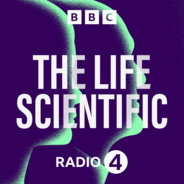Anne-Marie Imafidon passed her computing A-Level at the age of 11 and by 16, was accepted to the University of Oxford to study Maths and Computer Science.She's used to the 'child prodigy' label that's followed her throughout her career, but that doesn't mean she's had an easy ride. It was a combination of personal experience and the discovery that the number of women working in the STEM sectors - Science, Technology, Engineering and Mathematics - was in free-fall that inspired Anne-Marie to found Stemettes: a not-for-profit social enterprise introducing girls to STEM ideas and careers in fun and accessible ways. It's now in its tenth year and still growing, while Anne-Marie has received an MBE, enjoyed a successful stint as the numbers guru on the TV series Countdown, and is the current President of the British Science Association.In conversation in front of an audience at the 2023 Cheltenham Science Festival, she tells Jim Al-Khalili about her quest for equality and diversity across the scientific community - and explains why she thinks everyone has the potential to be a 'child prodigy', given the right opportunity...Produced by Lucy Taylor.

Wissenschaft & Technik
The Life Scientific Folgen
Professor Jim Al-Khalili talks to leading scientists about their life and work, finding out what inspires and motivates them and asking what their discoveries might do for us in the future
Folgen von The Life Scientific
348 Folgen
-
Folge vom 13.06.2023Anne-Marie Imafidon on fighting for diversity and equality in science
-
Folge vom 06.06.2023Bruce Malamud on modelling risk for natural hazardsFrom landslides and wildfires to floods and tornadoes, Bruce Malamud has spent his career travelling the world and studying natural hazards. Today, he is Wilson Chair of Hazard and Risk and Executive Director of the Institute of Hazard, Risk and Resilience at Durham University - but as he tells Jim Al-Khalili, a lifelong passion for discovery has taken Bruce from volunteering with the Peace Corps in West Africa and a Fulbright Fellowship in Argentina, to fieldwork in India; not only studying hazards themselves, but also the people they affect - and building up the character and resilience to overcome personal tragedy along the way...Over the years, his work in the field has opened up new ways of understanding such events: from statistical modelling to show how groups of hazards occur, to examining the cascading relationships between multiple hazards. And today, his focus is on projects that can bring tangible benefits to people at serious risk from environmental hazards - finding innovative ways to help them to better manage that threat. Produced by Lucy Taylor.
-
Folge vom 30.05.2023Gillian Reid on making chemistry countHow often do you think about chemistry?The chances are, not often - but it is vital to every part of our lives, from the air we breathe, to the processes that take place inside our bodies and the materials we use.Gillian Reid is Professor of Inorganic Chemistry at the University of Southampton and she is on a mission to make sure we all know what chemistry can do for us - and how it is tackling some of society’s biggest challenges.Hers is a story of firsts - the first in her immediate family to go to university and the first female member of staff in the chemistry department at the University of Southampton, where she later became the first female Professor and Head of Department. She is also the reigning President of the Royal Society of Chemistry - one of very few women to have taken on that mantle in its 182-year history.She tells Jim Al-Khalili about life as a female professor in a male-dominated space - and what needs to change to unlock chemistry for everyone. He also hears how Gillian is discovering new compounds that could revolutionise tech and medicine.We’ll also hear why she thinks research isn’t actually that hard and how chemistry can be a little bit like Lego… Do join us.Produced by Gerry Holt
-
Folge vom 23.05.2023Andre Geim on levitating frogs, graphene and 2D materialsThe world around us is three-dimensional. Yet, there are materials that can be regarded as two-dimensional. They are only one layer of atoms thick and have remarkable properties that are different from their three-dimensional counterparts. Sir Andre Geim created the first-ever man-made 2D material, by isolating graphene, and is one of the pioneers in this line of research. Even beyond his Nobel Prize-winning work on graphene, he has explored new ideas in many different areas of physics throughout his career. Andre tells Jim about his time growing up in the Soviet Union, being rejected from university based on his German ethnicity, his move to Western Europe, and levitating frogs. Produced by Florian Bohr.
